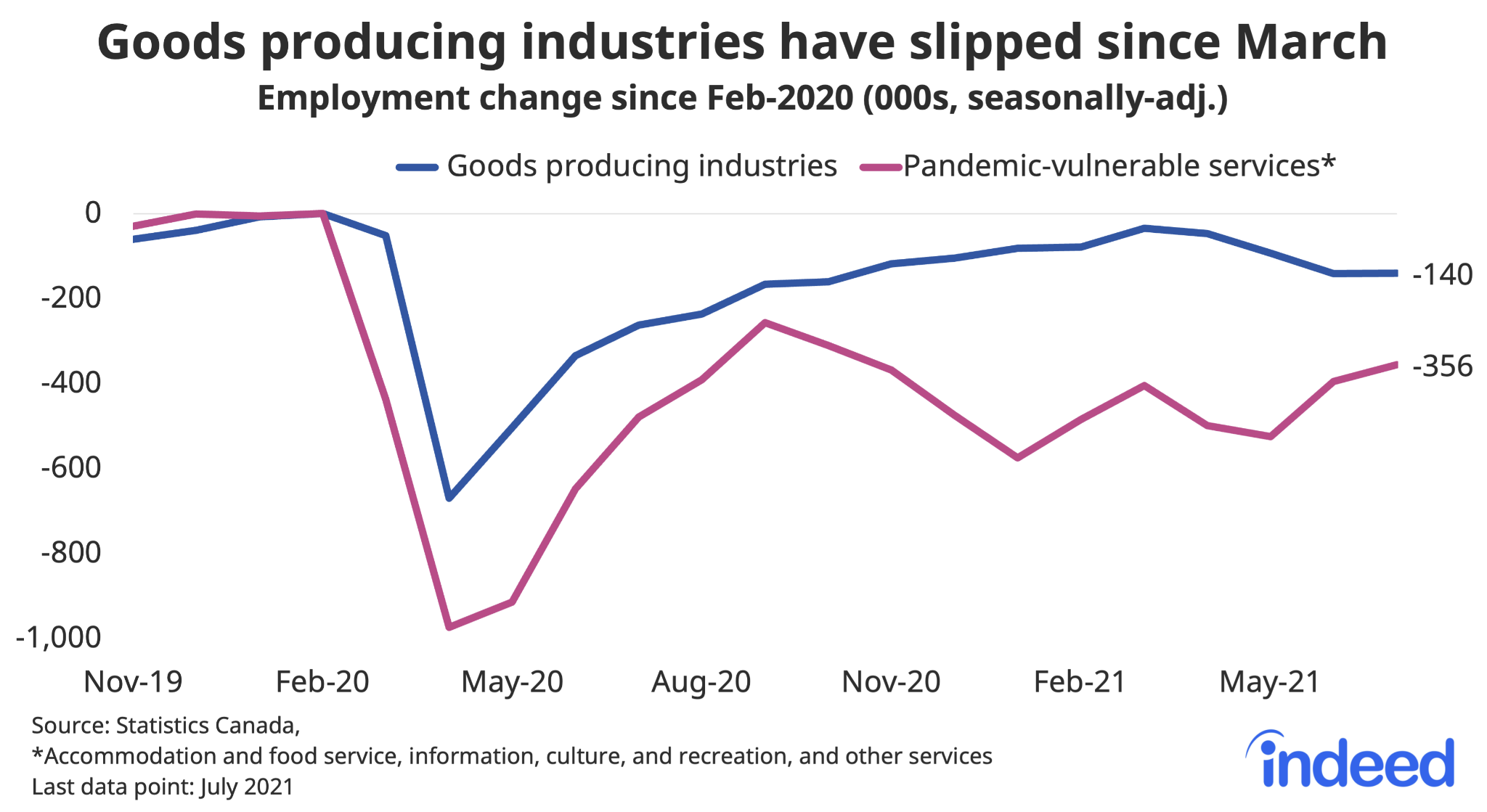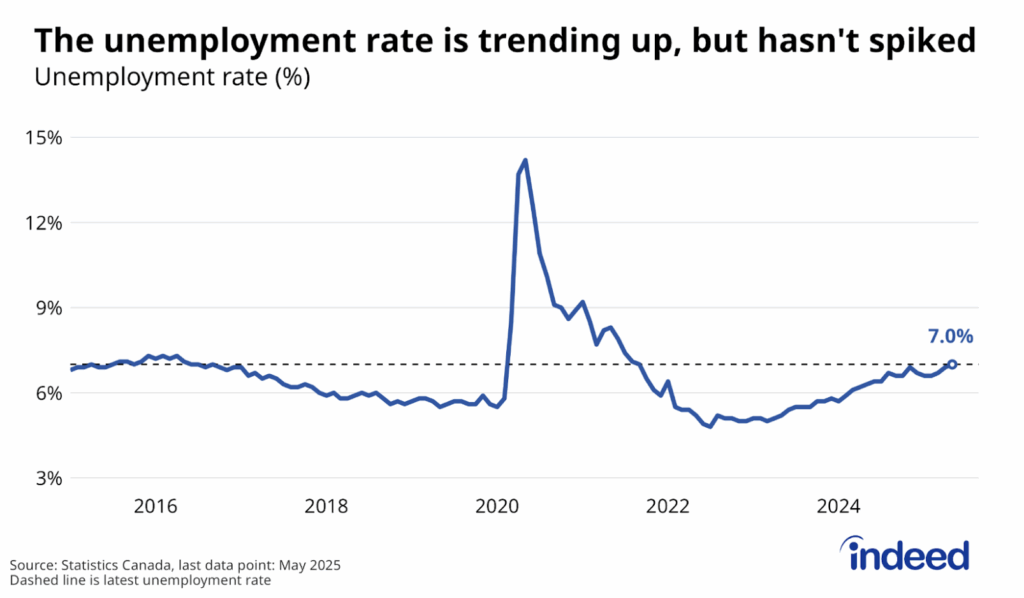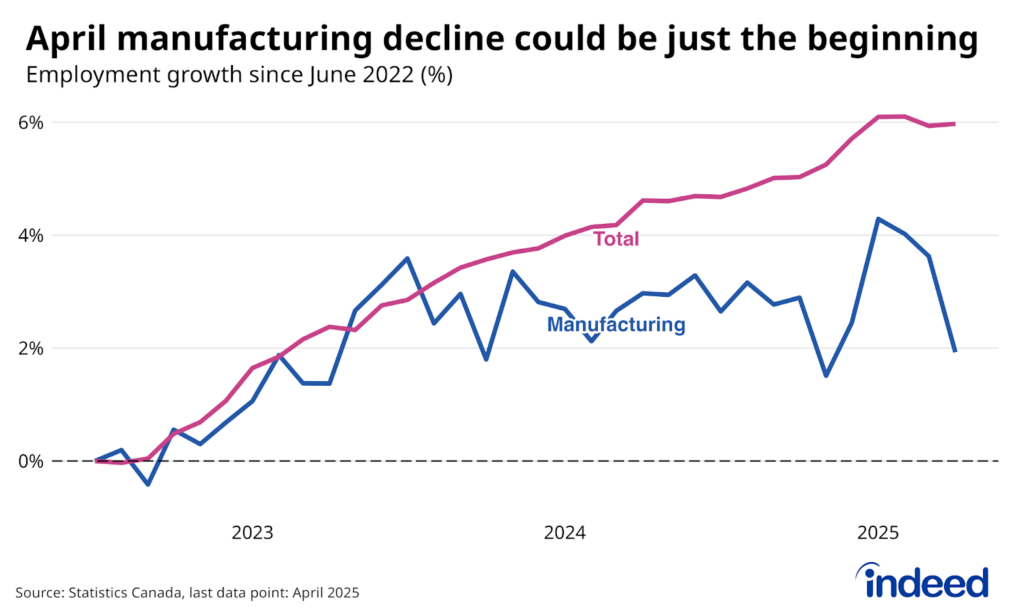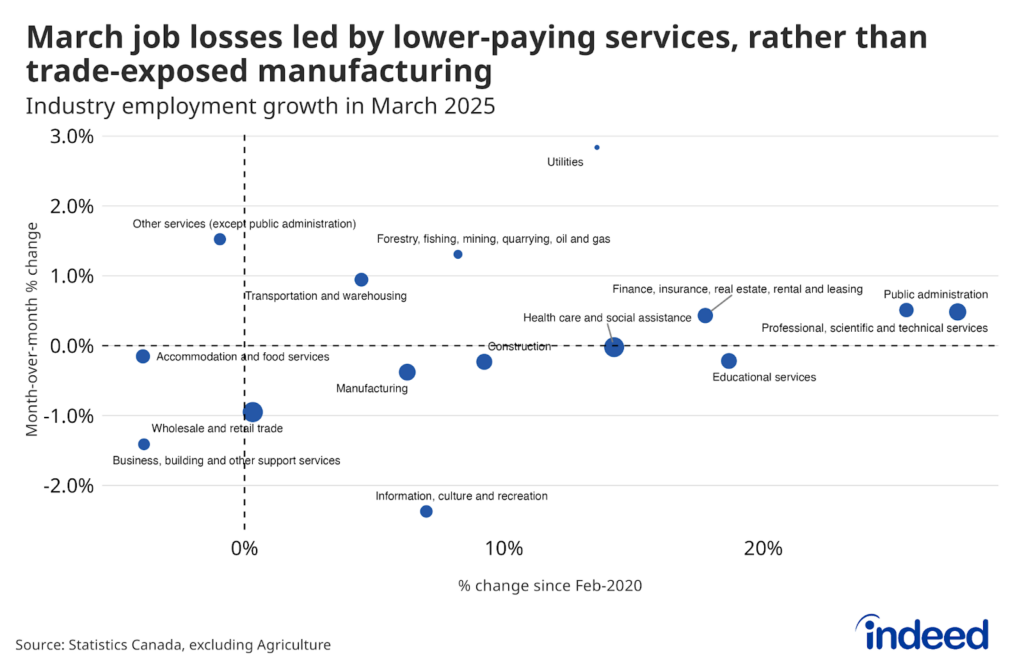The pace of Canada’s labour market recovery has cooled somewhat. Prior to a dip during the pandemic’s third wave, employment rose by an eye-popping 259,000 and 303,000 in February and March, respectively. During the vaccine-led reopening in June and July, gains were less rapid, at 231,000 and 94,000 a piece.
Pandemic-exposed services like accommodation and food services still stand out as the main source of Canadian labour market weakness. However, one reason that overall growth has eased more recently is that employment in goods-producing industries has slipped. Steady progress through March brought employment in the sector, which includes manufacturing construction, natural resources, agriculture, and utilities, to just 35,000 below its pre-pandemic level. However, these gains have partially reversed, with employment in the sector falling back to 140,000 below its February 2020 level as of July.
Part of this slip likely reflects broader economic trends in these industries, evident in the recent disappointing GDP numbers during the second quarter. Areas of manufacturing are dealing with supply chain bottlenecks, residential construction spending has cooled after an earlier surge, and non-residential construction remains weak. At the same time though, hiring appetite in these areas is quite elevated, with job postings on Indeed Canada in both construction and manufacturing both well above their pre-pandemic levels, much like the rest of the economy.
August employment growth will once again hinge on the extent of further reopening gains in pandemic-exposed industries. Ontario for instance had only brought back indoor dining toward the end of the July Labour Force Survey reference week, which could mean further progress ahead. Nonetheless, the drag from goods-producing sectors on the job numbers in recent months highlights how factors beside the trajectory of the pandemic can complicate the picture. If key areas of the economy like manufacturing and construction aren’t firing on all cylinders, the return to a healthy labour market will be a tougher slog.






